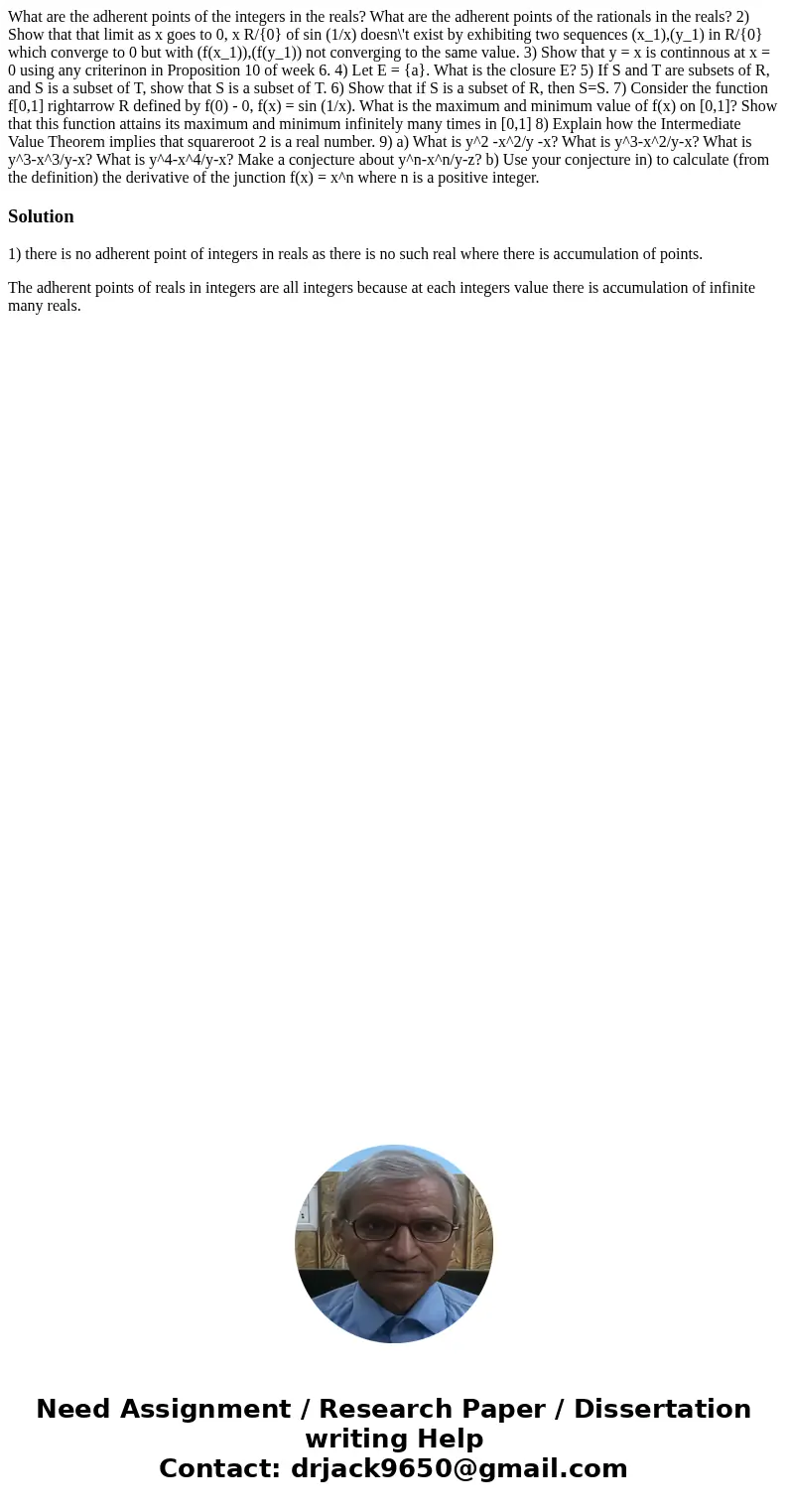What are the adherent points of the integers in the reals Wh
What are the adherent points of the integers in the reals? What are the adherent points of the rationals in the reals? 2) Show that that limit as x goes to 0, x R/{0} of sin (1/x) doesn\'t exist by exhibiting two sequences (x_1),(y_1) in R/{0} which converge to 0 but with (f(x_1)),(f(y_1)) not converging to the same value. 3) Show that y = x is continnous at x = 0 using any criterinon in Proposition 10 of week 6. 4) Let E = {a}. What is the closure E? 5) If S and T are subsets of R, and S is a subset of T, show that S is a subset of T. 6) Show that if S is a subset of R, then S=S. 7) Consider the function f[0,1] rightarrow R defined by f(0) - 0, f(x) = sin (1/x). What is the maximum and minimum value of f(x) on [0,1]? Show that this function attains its maximum and minimum infinitely many times in [0,1] 8) Explain how the Intermediate Value Theorem implies that squareroot 2 is a real number. 9) a) What is y^2 -x^2/y -x? What is y^3-x^2/y-x? What is y^3-x^3/y-x? What is y^4-x^4/y-x? Make a conjecture about y^n-x^n/y-z? b) Use your conjecture in) to calculate (from the definition) the derivative of the junction f(x) = x^n where n is a positive integer.
Solution
1) there is no adherent point of integers in reals as there is no such real where there is accumulation of points.
The adherent points of reals in integers are all integers because at each integers value there is accumulation of infinite many reals.

 Homework Sourse
Homework Sourse